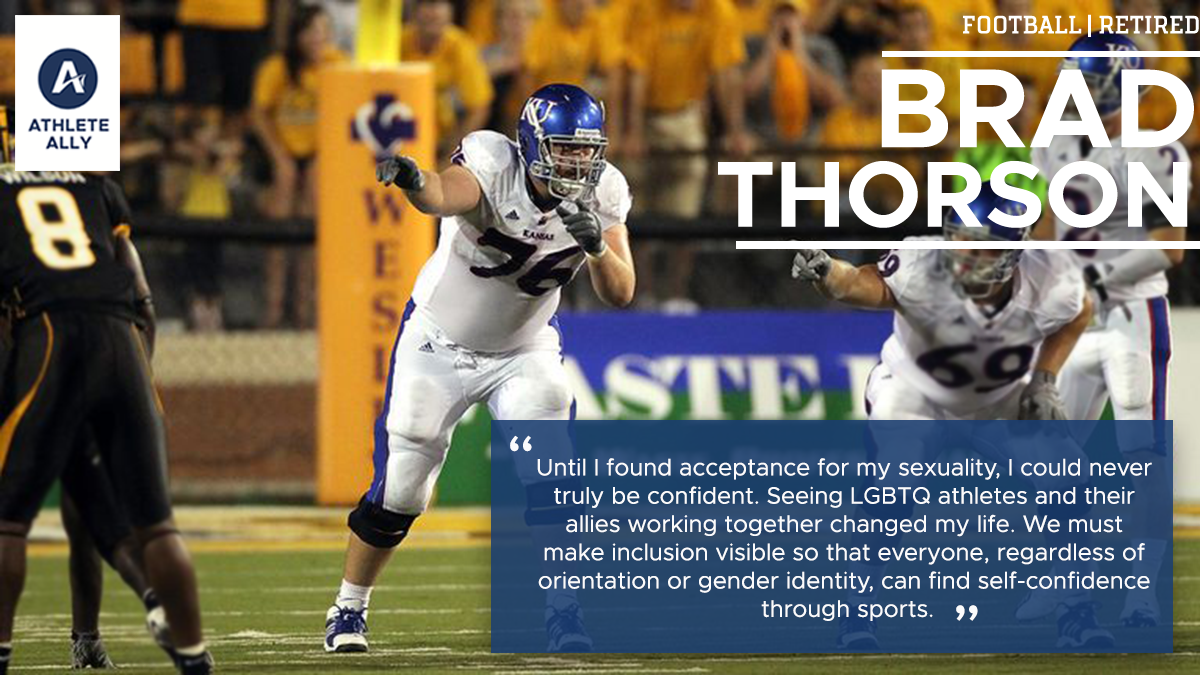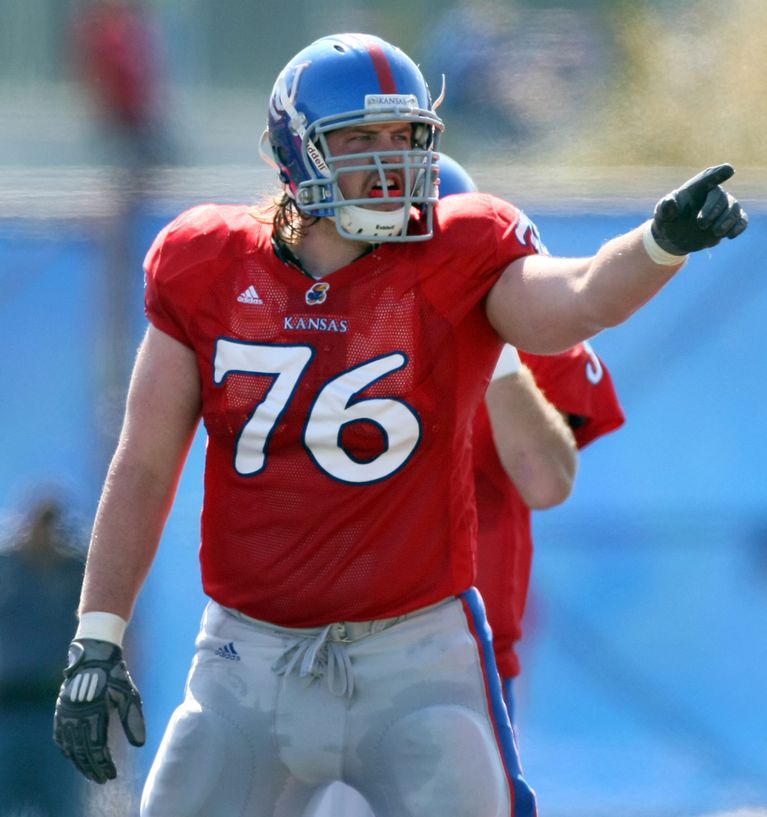Former NFL Prospect Brad Thorson: Stop Telling Athletes to ‘Man Up’

By: Brad Thorson, former college football player and NFL prospect, and Athlete Ally Pro Ambassador
No phrase has had such a powerful impact on my life as “man up”. I used to hear this over and over during football practice. While in many ways the narrow implications of this phrase left me feeling different and isolated, sport pushed me to succeed in parts of my life. I finished my masters while playing college football, and even had a cup of coffee with the Arizona Cardinals.
When that journey finally came to a close, when there were no more 6am workouts with the fear of punishment motivating us to show up, my emotional tool kit of “manning up” left me ill prepared for the real world. And that was even before I had to start unpacking my internalized homophobia from football as a closeted gay man.
What’s it like growing up closeted in a hypermasculine sport like football? The safety of the sport aside, high school and collegiate football instilled in me a work ethic and determination that’s allowed me to persist through the hardest times in my life. At the same time, I can’t ignore how personally stunted the sport left me by making it easy to suppress who I really was.
We can do better by our athletes.
Think of your favorite sports movie, when the team’s back is against the wall. How are they motivated – by fear or by hatred? No, these movies strike a cord with us because they are about the love of the game, of our teammates, and of the work that went into being there in that moment.
Our coaches and administrators would do well to remember that. Fans want storylines of love and camaraderie. And when student-athletes face adversity, they have a much better chance of succeeding if they can bring their whole selves to the task.
The prevalence of homophobic language and hyper-masculinity made it clear to me that gays weren’t welcome in football. I was good at football, and so I constructed strong mental barriers around anything intimate that might reveal who I really was.
That external pressure only increased the more I succeeded. As the stakes became higher and higher, my internalized homophobia and fear of doing anything to be ostracized followed suit. I have some amazing memories from my college football days, but while my teammates emotionally matured, I spent much of those five years fighting myself.
It’s hard enough to face this level of pressure, much less having to then deal with the added stress of traveling for games and being without familiar support systems. Looking back, it’s clear to me that supportive coaches and other decision-makers could have made a huge difference in my experience.
Sport has tremendous power to affect societal change. Too often, the responsibility falls on the shoulders of an individual athlete kneeling alone. But we need systemic change, and that will only happen if we have leagues and coaches standing with their athletes. Occasionally, leagues do the right thing and force states and localities to flush their transphobic laws before they’ll host events there. We need more of this, and more coaches and leaders who speak out in support of the LGBTQ community.
It’s time to stand up.

The NCAA has an incredible opportunity to drive cultural acceptance, if they’re willing to set standards for the environments they ask athletes to play in. The well-being of student-athletes must come first, and that means fostering a culture where inclusion matters, and where there’s no place for homophobic and transphobic fans.
The NCAA Board of Governance has committed to ensuring NCAA events provide an inclusive environment. We need a clear commitment that this includes the LGBTQ community as well, through elements like strict Fan Codes of Conduct, nondiscrimination policies, and gender-inclusive facilities. In addition, the NCAA should be looking at the Human Rights Campaign Municipality Equality Index when deciding where to award championship sites, and not selecting sites that fail to protect the LGBTQ community from discrimination.
Tonight, when I watch LSU and Clemson play in the National Championship Game, I’ll be thinking back to my time as a college athlete. If there are any closeted athletes playing tonight, I hope they’re surrounded by the support they need. And I hope that administrators, coaches, and fans alike recognize the impact they have on young people’s lives, especially ones struggling with their identity.
If you’re reading this and you’re still afraid of the gay boogie man under the bed, I challenge you to look and see he’s not there. LGBTQ athletes are your teammates, relatives, friends and neighbors. Instead of turning them away, reach out a helping hand. And instead of telling them to “man up,” tell them you have their back, no matter what.
Be the change. Set an example of inclusion.
Want to receive stories like this in your inbox? Sign up here.